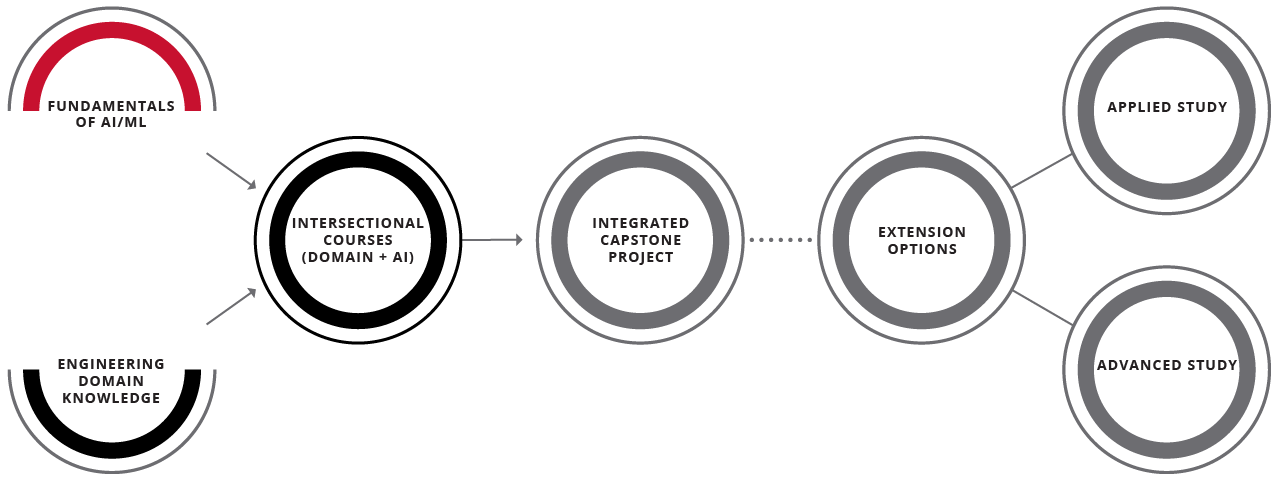M.S. in Artificial Intelligence Engineering - Biomedical Engineering (MSAIE-BME)
Artificial Intelligence (AI) no longer just lives in the digital realm of social media and e-commerce – it has also become a critical part of physical technologies in healthcare, transportation, communication, manufacturing and more. In Biomedical Engineering, AI has the potential to transform healthcare with a wide range of applications. Biomedical AI can help a doctor diagnose a disease, determine its optimal treatment, and predict the patient’s prognosis. Biomedical technologies such as brain-computer interfaces, neuroprosthetics and medical imaging have been enriched by the application of AI and machine learning techniques to biological signal analysis and image processing. Biomedical AI can thus be used to improve the quality and length of life.
The MS program in Artificial Intelligence Engineering in Biomedical Engineering offers students the opportunity to gain mastery of AI and Biomedical Engineering domain expertise while learning how to integrate AI/machine learning approaches with engineering design and system analysis to develop effective solutions in biomedical engineering.
Fall-entry application opens in October.
For more information, please visit the graduate admissions overview page.
Career Preparation and Opportunity
As the first program of its kind in the nation, graduates of this program will be uniquely positioned for high demand careers in this burgeoning field of Biomedical Engineering.

Program requirements
This is a three-semester program designed for students with undergraduate degrees in engineering or related disciplines and interests in advanced education in artificial intelligence, machine learning, and their applications in the domain of biomedical engineering. There are four main background areas that are required for this degree program: mathematics, computer programming, scientific and quantitative reasoning, and engineering. The mathematics background should include some exposure to probability and statistics and linear algebra. The computer programming background should include exposure to algorithms and, ideally, some level of application development.